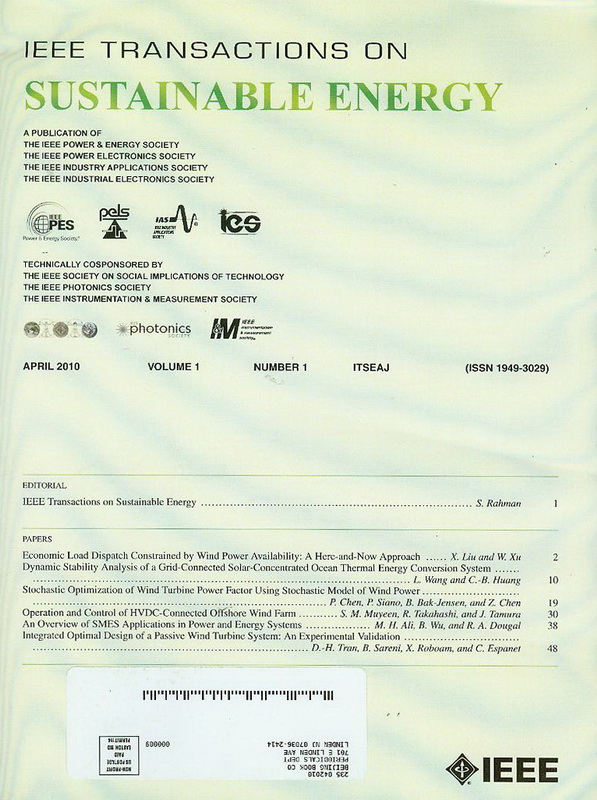波浪能的短期概率功率预测方法
IF 8.6
1区 工程技术
Q1 ENERGY & FUELS
引用次数: 0
摘要
波浪能对海洋的可持续发展至关重要。然而,复杂的海洋天气条件导致波动的波浪功率输出,导致预测中的模仿现象。此外,数值天气预报数据源的缺乏加剧了预报的不准确性。为了解决这些问题,针对浮点吸收波能系统,提出了一种序列特征感知(SCP)方法和一种先进的混合模型——分位数自由损失门控循环单元核密度估计(QLB-GRU-KDE)。在第一阶段,SCP方法通过集成方法获得先验知识。在第二阶段,使用自由损失函数来减轻模仿现象。此外,采用GRU和KDE相结合的混合模型对波浪能发电进行概率预测。此外,提出了一个度量来评估模仿的严重程度。基于真实世界的波浪数据集进行了案例研究,其中检查了确定性和概率预测方法。通过与前沿同行的比较发现,设计的自由损失有效地缓解了模仿问题。通过多个指标验证了该模型的精度、稳定性、可靠性和敏锐性等综合性能。本文章由计算机程序翻译,如有差异,请以英文原文为准。
A Mimicking-Avoiding Short-Term Probabilistic Power Forecasting Method for Wave Energies
Wave energy is essential for sustainable marine development. However, complex marine weather conditions cause fluctuating wave power outputs, resulting in a mimicking phenomenon in predictions. Moreover, the lack of accurate numerical weather prediction (NWP) data sources aggravates the prediction inaccuracy. To address these obstacles, a series characteristic perception (SCP) method coordinated with an advanced hybrid model, the quantile liberty loss gated recurrent unit kernel density estimation (QLB-GRU-KDE), is proposed for the floating point absorber wave energy system. In the first stage, the SCP method gains prior knowledge via ensemble approaches. In the second stage, a liberty loss function is used to mitigate the mimicking phenomenon. Furthermore, a hybrid model that integrates a GRU and KDE is adopted for the probabilistic forecasting of wave energy generation. In addition, a metric is proposed to evaluate the severity of the mimicking. A case study based on a real-world wave dataset is conducted, where both deterministic and probabilistic prediction approaches are examined. Comparisons with the cutting-edge counterparts reveal that the designed liberty loss effectively mitigates the mimicking issue. The comprehensive performance of the proposed model, including the accuracy, stability, reliability and sharpness in wave power prediction, is validated by multiple metrics.
求助全文
通过发布文献求助,成功后即可免费获取论文全文。
去求助
来源期刊

IEEE Transactions on Sustainable Energy
ENERGY & FUELS-ENGINEERING, ELECTRICAL & ELECTRONIC
CiteScore
21.40
自引率
5.70%
发文量
215
审稿时长
5 months
期刊介绍:
The IEEE Transactions on Sustainable Energy serves as a pivotal platform for sharing groundbreaking research findings on sustainable energy systems, with a focus on their seamless integration into power transmission and/or distribution grids. The journal showcases original research spanning the design, implementation, grid-integration, and control of sustainable energy technologies and systems. Additionally, the Transactions warmly welcomes manuscripts addressing the design, implementation, and evaluation of power systems influenced by sustainable energy systems and devices.
 求助内容:
求助内容: 应助结果提醒方式:
应助结果提醒方式:


